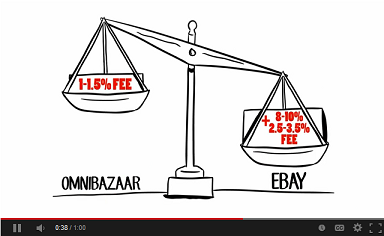Many Internet marketplaces are referred to in the media as "peer-to-peer", because they allow sellers to set up their own "shop" on the host site and sell "directly" to other users. These marketplaces are not really peer-to-peer, because
every listing, every search, and every transaction passes through the central servers of these marketplace "middlemen". Examples of this type of "peer-to-peer" marketplace are eBay, Amazon, Rikutan, Etsy, and CraigsList.
That is not the definition of "peer-to-peer" that applies to OmniBazaar.
The definition of peer-to-peer that applies to OmniBazaar is "denoting computer networks in which each computer can act as a server for the others, allowing shared access to files and peripherals without the need for a central server." (Google definition.) Examples of this type of peer-to-peer structure are DropBox, BitTorrent, μTorrent and Shareaza.
Listings, searches, and transactions in OmniBazaar pass from computer to computer, among the users of the network, without ever passing through a central server. Each computer in the network can acts as both a server and a client, to provide and receive information. This allows the OmniBazaar network to "scale" to almost unlimited size. It also allows OmniBazaar to operate profitably with much lower fees than the "middleman" sites.
See how we are enabling e-commerce without the middleman, and payment without the bankers. OmniBazaar is an Internet marketplace "of the people, by the people, for the people".

